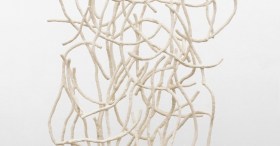Choosing to do an artist residency, especially one abroad, is not a cheap exercise for any artist. Many will turn to grants to help offset travel expenses. Others view the opportunity as a “one off” investment in their careers, with the hope of kick starting new avenues for engagement and income.
But with the retraction of all travel during COVID-19, artists committed to international residencies have had to scramble to get refunds. While this is a case of joining the queue along with many travellers looking at cancelled flights, artists do not have the guarantees from residency programs – many of which are small independent business buckling under the shutdowns.
Res Artis – the peak member organisation for the international arts residencies field comprising more than 700 vetted members in over 85 countries – recently published a FAQ for artists dealing with cancelled residencies.
They reminded artists that, ‘these matters can be complex’, adding that ‘like any business, arts residencies may not have the means to return artist fees or cancelled residency expenses in the case of insolvency or bankruptcy.’
Tapping their knowledge network, Res Artist is conducting a survey examining the impact of COVID-19 upon residencies – both to organisations and artists – which wraps up 1 June. Share your experience.
FINDING DIPLOMACY IN A CRISIS
Eliza Roberts Executive Director, Res Artis in Australia, put it simply: ‘This is a very tough situation for both artists and arts residencies.’
Her organisation has been contacted by only a handful of artists having difficulty negotiating residencies, as well as artists stranded abroad, and member organisations under pressure. She reminded, ‘The residency landscape is so diverse,’ and was strong in her faith that ‘art residencies are our future.’
She told ArtsHub: ‘Res Artis recommends all artists and arts residency providers liaise directly, and in writing, to try to negotiate a solution that assists both parties…Many residencies are providing full refunds to artists if they have the means to do so, or credit notes with the view for residency activity to re-commence in the near future.’
ArtsHub spoke with Kylie Gusset, who faces a €6,500 debt ($AUD10,800) for a residency with A.I.R. Vallauris (France), which was due to commence in April.
Gusset said: ‘What’s problematic, is that no matter which way you slice and dice their [Res Artis] advice, artists are going into debt at the expense of the residency.’
Gusset is a Melbourne-based ceramicist who describes herself as an emerging artist, and completed a Diploma of Ceramics at Brookvale TAFE in 2019, and yet she has an incredible following with over 101,000 on her Instagram page, NoticingCeramics.
She used this platform to bring attention to her situation, writing: ‘I’ve been refused a refund, which was part of the agreement that I signed with the organisation before payment. Upon letting them know that non refund was not a viable solution, they’ve now offered a refund in 18-months time. Unfortunately I’m not capable of providing 2-year interest free loans to arts organisations and I’m confused regarding why I, as a graduate student, should be. What I need is a full refund of €6,500 euros. Now.’ (6 May 2020)
Director of A.I.R. Vallauris, Dale Dorosh responded to Gusset both via social media and personally.:
‘We are constraint to initially offer Credit Notice for fees paid for residencies in accordance to an Ordinance #2020-315 issued by the French Government relative to financial conditions and the resolution of contracts concerning sojourns during exceptional and unavoidable circumstances, specifically in this case affected by the Covid-19.
‘Correspondingly this Credit Notice is valid for 18 months, during which time we offer the possibility for artists to reschedule their residency, otherwise and after which fees are reimbursed.’
$10K is a steep deficit to be lumbered with as an artist at any time, despite now when discretionary shopping for art is not first on the list. So if you are like Gusset, what can you do? And how, as an artist or residency provider, can you find the right balance between compromise and compensation?

Image Shutterstock
BETWEEN A ROCK AND A HARD PLACE ⠀
⠀
Located in the heart of the old town Vallauris in the French Riviera, A.I.R. Vallauris is a non-profit association that welcomes artists to its lodgings and studios – to date over 350 international artists have gone there since the residency’s creation in 2001. It is also one of just 700+ members under Res Artis.
It is by no means unique or singled out in this conversation. Many residencies globally are small, not for profit entities that can only operate on an artist-pay scenario. And it is a price that many artists choose to pay sitting between a career and a life/travel opportunity.
Gusset told ArtsHub: ‘Even though for me [the residency] cost an arm and a leg, if you spend three months in a hotel in France it is crazy expensive, so I faced it as a once in life time experience – it was a career investment,’ she said, adding that residencies often have a knock-on effect to other opportunities.
Leading into her residency, Gusset travelled via Japan where she attended a 30-day workshop. However, it was while there that the French borders closed due to coronavirus, forcing her home to Australia and into hotel isolation on 29 March. She was among the first group to be put into forced lockdown.
‘The deal I signed – the residency agreement – said my 20% deposit would be waivered, but I would get the rest refunded. [But] their response was that due to the current financial crisis, “we’ll give you a credit note – kind regards”.
Gusset told ArtsHub she turned to a book on how to negotiate in hostage situations to help her, taking their advice and ‘inundated them with barrage of questions’.
But she heard nothing back. It was only when she turned to social media that within hours she had received a reply from the organisation.
Gusset’s point is that she is essentially, ‘giving them a 2 year interest free loan’, with no guarantee of returned travel and restrictions eating into that period, further adding that her financial loss as an artist during that 18-month period held no guarantees either, and would likely force her to default the credit note by not having the funds to travel.
In an open letter on their website, Res Artis said: ‘The ramifications of COVID-19 will be felt by arts residencies and artists for months and possibly years to come,’ adding that, ‘The situation of COVID-19 is unprecedented and everyone must make compromises.’
The Res Artis team offered the comment: ‘We acknowledge that arts residencies operate in countries and regions with different socio-economic contexts and that some have little or no funding support available to them.’
Res Artist have called on all their member residencies to adhere to a set of values and ethics to underpin their decisions they made during these times, and have said they will revoke memberships if they do not.
Their website offers a thorough list of advice on how artists like Gusset might negotiate their situation. But sadly, the reality is that there is little recourse when facing a situation of force majeure – that clause in a contract which relieves a party from performing its contractual obligations due to an event outside the reasonable control.
ADVICE AND GUIDELINES
While arts residencies contracts are private between artists in residence and residency providers, Res Artis urges the following best-practice advice be followed by both artists and arts residencies in relation to cancelled residencies:
- Read the artist agreement signed on acceptance of the residency by both parties. Is the fee breakdown clearly outlined? Does it specify terms and conditions that enable a credit note or refund due to cancellation? Is the full amount refundable or does it include a non-refundable component? Does the contract address force majeure?
- Discuss the matter directly with each other, in writing, in a courteous and professional manner.
- Understand that compromises likely need to be made by all during COVID-19. Are you able to negotiate a full or partial refund? Can an official credit note be created with the intention of taking up the residency at a later date? Res Artis recommends credit notes are issued in document form for at least an 18 month period.
- Complete the Res Artis survey open to both artists and arts organisations to help us analyse the impact of COVID-19 on the arts residencies field with concrete data.
- If the residency is one of our members and you have attempted to resolve the matter amicably and in good faith directly without solution, then artists can submit a complaint for Res Artis to investigate using this online form.
Res Artis is unable to offer any legal advice, and they encourage to seek professional assistance if the matter escalates.
ArtsHub will be reporting Res Artis survey results in the coming weeks, to give a broader picture of the impact on the residency sector.





